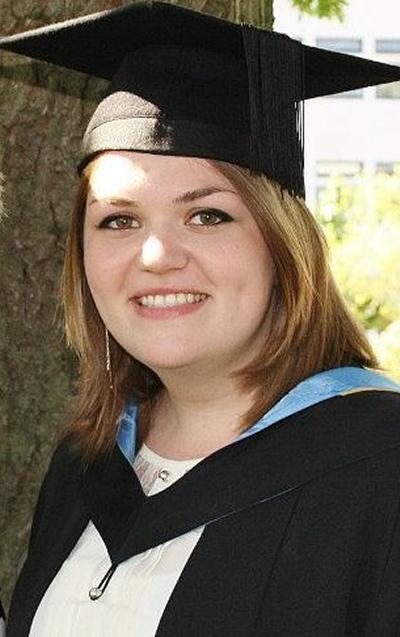Zoe Bevis BSc Audiology
PhD Student

Hi, I'm Zoe Bevis and I studied BSc Audiology within Engineering and the Environment at the University of Southampton.
"I loved almost every minute of my BSc! It was very hard work at times but many course-mates have become friends for life. The clinical placements I completed were rewarding and gave me all the skills I need for a successful career in Audiology."
"I chose to study Audiology because of the combination of science and healthcare. The lecturers at Southampton were really enthusiastic about their subject and the idea of a vocational degree was very appealing to me.
I loved almost every minute of my BSc! It was very hard work at times but many course-mates have become friends for life. The clinical placements I completed were rewarding and gave me all the skills I need for a successful career in Audiology.
I started my PhD within 3 weeks of completing the BSc! I wanted to increase the opportunities available to me when working in a clinical environment in the future. I also enjoyed the individual research project I completed in my 4th year and wanted to work in research for a few years before embarking on a clinical career.
I successfully applied for a PhD scholarship from Institute of Naval Medicine to study auditory fitness for duty. The scholarship is very important to me and I was surprised to be accepted onto the programme.
Together with another PhD student Hannah Semeraro, I am working on a project entitled "The development and validation of a test of functional hearing ability for military personnel".
One of the greatest threats to the deployability of Service personnel (principally Royal Marine and Army) is noise-induced hearing loss and the extent of this is measured using Pure Tone Audiometry. The decision about a soldiers' deployability is then based upon four discrete classifications of hearing loss: the ‘H' categories. This system can be traced back to the 1970's but there is no evidence to suggest that it correlates with functional hearing ability in military environments.
We aim to develop a new hearing test (or battery of tests) that is able to predict an infantryman's ability to carry out the ‘mission critical' hearing tasks that are required to perform their job safely and efficiently. So far this has involved travelling all over the UK to interview 80 army personnel about their experiences on tour in Afghanistan.
The Audiology department at the University of Southampton has been supportive and encouraging. It is great to know I am part of an internationally recognised centre of research and that I have a future in an interesting and rewarding area of healthcare."